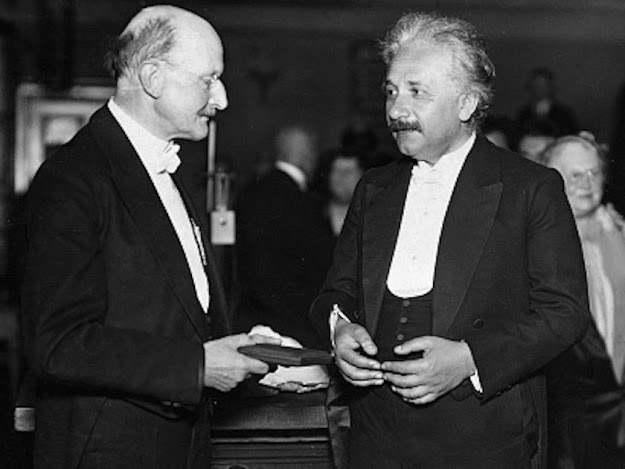Have You Delegated ?
Since the beginning of my stint in the government service there is one thing which I always tried to do and am still trying to accomplish wherever it is possible and required to be done. This is the area of how to “Delegate Tasks” professionally and effectively.
As a leader we should free ourselves, as much as possible, from those tasks that do not relate directly to the core mission. This would allow us more “Thinking Time” for the things that actually matter.
The Mindset Factor
I have observed many good leaders closely and also learnt from them the art of delegating the task. This is one area where many leaders concentrate less as there is a “Mindset” which discourages delegation of tasks. This mindset advocates that if senior leadership delegates certain roles of their duties, they are in fact minimising their power, importance and influence within the organisation. Nothing can be farther from the truth than this false assertion regarding the delegation of tasks.
My observations and personal experiences in leadership are entirely different from that negative mindset. My experiences shows that after delegating the required tasks, I felt more empowered to concentrate on the core areas related to the organisational vision. I realised that after delegating, I was indulging less in things which were actually unimportant to me at my responsibility level. Those were in fact routine works which should have been delegated long back.
I realised that the person who was doing the “delegated work” was actually doing much better than me as he was concentrating better than me. This was because he had time to focus on it which I lacked due to a variety of roles.
The Rules of Delegation
My experiences in the government has led me to develop certain rules regarding the subject matter of “delegating the task”. I want to share my own knowledge which I learnt through trial and error exercises and also the lessons absorbed from other successful leaders.
There are two very simple Rules Concerning Delegation but their significance is immeasurable.
The First Rule
In delegation we only delegate the Power, Authority, Influence and the Resources (PAIR) commensurate with that task and never the “ Responsibility & Accountability” and the PAIR must not at all move beyond the allocated Task at any cost.
The Second Rule
In the act of delegation the overall “ Responsibility & Accountability” shall always rest with the one who delegated the task ( the leader ) and there must be no confusion in this regard.
These two simple statements of facts as mentioned above are the cardinal Rules of Delegation. It must not be violated at any cost or else the organization and the leadership suffers the incalculable cost.
Why Leaders Fail To Delegate ?
There are many reasons which I personally encountered and observed of others, during my leadership journey, for the failure of delegation. Everyone learns either by committing mistakes themselves or by analysing the follies of others and this is what is called Experiential Learning. I have essentially realised that there are basically four (4) reasons why the “ Delegation of Task” fails and these are the matters worth sharing for everybody.
Horses For The Courses
The leadership is not choosing the right candidate for delegating the task. It is the test of leadership in itself to select the right person. It is the leadership who is under intense scrutiny, most of the time, in this scenario. My personal observation is that the delegated task does not fructify to its expected level because very less attention is paid to whom the task is to be allocated.
Most of the time the leadership is in a hurry to just delegate and make himself or herself free from that onerous responsibility. This is where the leadership is making a mistake. We must give appropriate time and intellect to the selection of the right candidate who can take that responsibility to its logical ends.
You can lead a horse to water, but you can't make it drink
This is one reason where the mind of the leadership is mostly not concerned at all. The leadership assumes that since they have selected the right candidate for the task there is no need to know whether the candidate is willing or not for the responsibility. Capability is important but it is equally important that the capable person is willing to do the job mentally and physically.
If we do not select the willing and capable person we have a proverbial scenario of a bad workman quarreling with his tools. The unwilling selected candidate will ruin the prospects of the task and also demotivate other prospects from the future responsibilities. This is simply the case where “You can lead a horse to water, but you can't make it drink”.
The horse and the man conversation
For the simple tasks delegated, it is easy for anyone to understand what actually is expected from the responsibility. But there are complex tasks that require definite and crystal clear clarity as to what is expected from the delegation. The leader must bring total clarity as to what is delegated and what is not delegated and how to go about the delegated task.
If it requires the leader to explain in detail about the delegated task then it should be done. Further if it also requires some degree of training then it must also be provided. The idea is that nothing should be left to chance and confusion.
Have You Equipped The horse for the journey ?
There is another reason why delegation of tasks fails. The leader has provided the power, authority and the influence to get the task done and also selected the willing capable candidate for the job but there is still something important missing.
This is what I personally learnt from my mistake as a leader. I delegated the task to the right and willing candidate and expected the results to come. But when I reviewed the matter it occurred to me that the task failed due to the lack of resources. It was simply a case where I did not think beyond the obvious but since it was the initial stage not much problems arose.
The adequate resources required for the job should not be missing from the whole story. This is where the leadership must focus before the task starts. Most of the time, I have seen, we forget about allocating the resources commensurate with that job. The manpower, monetary, technical and the contextual specific resources are generally forgotten while delegating or maybe not allocated upto the requisite level.
What I think
There is a limit to which the leaders can delegate. You just cannot delegate your roles and duties that form the core definition of leadership. The leaders cannot delegate their responsibility and accountability which will always lie with them.
The oversight, vigilance and the monitoring aspect falls under the original concept of leadership. These are the things that can never be delegated. if someone delegates these original roles & functions then be assured that the vision & mission of the organisation will be severely compromised. To be precise I feel that such persons automatically lose the right to be called leaders.
My Thumb Rule of Delegation
The Thumb Rule to be followed is that leaders must not delegate those duties which form the vital part of their mission and those that are the core aspects of the organisation. The leaders must assess the reasons for which they were given leadership roles in the organization in the first place and once that is known then that roles are generally not delegated to anybody. This is as simple as it can get.
The art of delegation also requires “leadership of the mind” from the leader. The very fact that you are able to delegate the thing that needs to be delegated, shows the leadership qualities of that person. It also shows in one stroke that the leader understands his roles, his human resources and the organization he is leading. There cannot be more clear evidence of leadership than this action of delegation.
As a Leader Never Do This
When you delegate the task you also delegate inherently the decision making powers associated with that task. You cannot simply say that you will delegate the task but will not allow that person to make certain decisions related to that task. This will be a very weird and complicated situation in the whole process of delegation.
The person who is performing the task will always be confused and he will not regularly come to the leader to ask for decisions related to that task. It will become more cumbersome for the leader himself and defeat the whole purpose of delegation of tasks. If everything is again to be asked from the leader then why delegates at all in the first place.
This is the reason experienced leaders never delegate core areas of their work otherwise they will have to practically delegate core decision making also. That would be disastrous for everybody.
What are your views ?

 Get a PDF Free Book
Get a PDF Free Book



























































































































































































































































